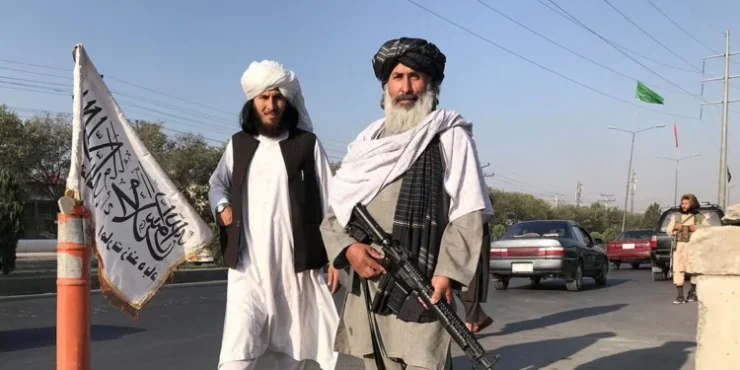
Afghanistan holds immense geopolitical significance in the global politics. The country has caught the attention of international powers and newspapers since the 9/11 plane crashes into the World Trade Center. Since then, it continued to remain in the headlines. However, Afghanistan has always been discussed as anything but a chessboard of global politics or a security threat to regional and global peace. These aspects hold significance in shaping the Afghan predicament, but the country’s internal dynamics are also responsible for chaos and turmoil in Afghanistan.
Afghanistan has been the center of attention for global powers since the Cold War. The 9/11 plane crashes increased the significance of the country. The wars since the Cold War brought decades-long chaos and turmoil to Afghanistan. However, the international media covered limited factors resulting in this instability in the state. Although these factors shaped the plight of the state to a great extent, the interplay of religion, tribal affinities, and cultures are also some of the defining aspects of the Afghan predicament. The internal social and religious dynamics have played a significant role in shaping the attitudes of the Afghan people towards native tribes, families, and foreign invaders.
Therefore, the distinctive and contradictory features of the Afghan society are significant for formulating effective policies regarding the country. The narrow view of analyzing the Afghan issue only through the lens of great-power rivalry is greatly flawed and all the policies, made to resolve the issue, based merely on this aspect are bound to fail. An in-depth understanding of the internal dynamics of the Afghan society is indispensable for acquiring and assuring a prosperous and better future for the people of the country.
Ethnic Diversity and Tribal Rivalries
Afghanistan is home to diverse ethnicities. Pashtuns, Uzbeks, and Tajiks are some of the famous ethnicities in the country. The ethnic divide and rivalries could be gauged by the fact that some of the ethnic communities even deplore being called Afghans, as it is often used interchangeably for Pashtuns. The latter holds the majority of the ethnic groups in the country. Pashtunwali, their distinct behavioral code, serves are the guiding principle in regulating their behavior and lifestyles. Tribal and personal honor are given priority in the Afghan tradition. Throughout history, Afghan individuals have revenged the smallest insult with valor. Ownership of land serves as the key reason behind intra-tribal conflicts.
Families and clans are often seen divided over the issue of land. However, the Afghan tribes and clans unite against any external rival. Tribal conflicts are rife in Afghanistan. Foreign invaders have often used these rivalries for their leverage. They used these tribal conflicts to pursue a divide-and-rule policy. Tribal conflicts are amongst some of the main impediments against all the attempts at the centralization of power in the country. The Pashtun tribes are the fiercest obstacle to the centralization of authority in the country. They could rise even against the other Pashtun tribes, who they perceive as unlawful usurpers of power and authority.
Historically, the Pashtun and non-Pashtun people have always been in conflict with each other. The two sides have been at war multiple times. Religion is also an important factor in shaping the internal dynamics of Afghan societies. Islam has been the stimulating factor behind the rise of the Taliban in Afghanistan, especially after the 9/11 incident. Religion has also served as a triggering cause of rivalries and interlinkages in Afghan society. Different ethnic groups belong to specific sects, turning the intertribal rivalry into sectarian conflicts. The Taliban and Pashtuns are predominantly Sunnis. There has been a historical antagonism between the Pashtun Sunni tribes and the Shia Hazara community of Afghanistan. Religious sentiments are often exploited by different communities in the country against domestic and foreign rivals.
Policy Implications and Future Prospects
These distinct features and some other domestic intricacies of the Afghan society are generally overlooked by regional and international powers while formulating any policy about the country. The United Nations called two conferences on Afghanistan without the presence of any representative of the interim Afghan government. Both conferences failed because the UN was unable to understand the internal dynamics of the Afghan society. The United States and NATO fought the Afghan Taliban for almost two decades. However, all their policies towards the country and their attempts to establish a democracy in Afghanistan failed due to their apparent oblivion to the internal social dynamics of the society.
The Third UN Conference on Afghanistan is currently underway in Doha. It is the first time that representatives of the interim Afghan government are also participating in the conference. This provides a peculiar opportunity for the international and regional players to formulate a pragmatic policy for the betterment and prosperity of the people of Afghanistan. However, this is only possible by considering the internal dynamics of the country.
Taut Bataut – is a researcher and writer that publishes on South Asian geopolitics, exclusively for the online magazine “New Eastern Outlook”.